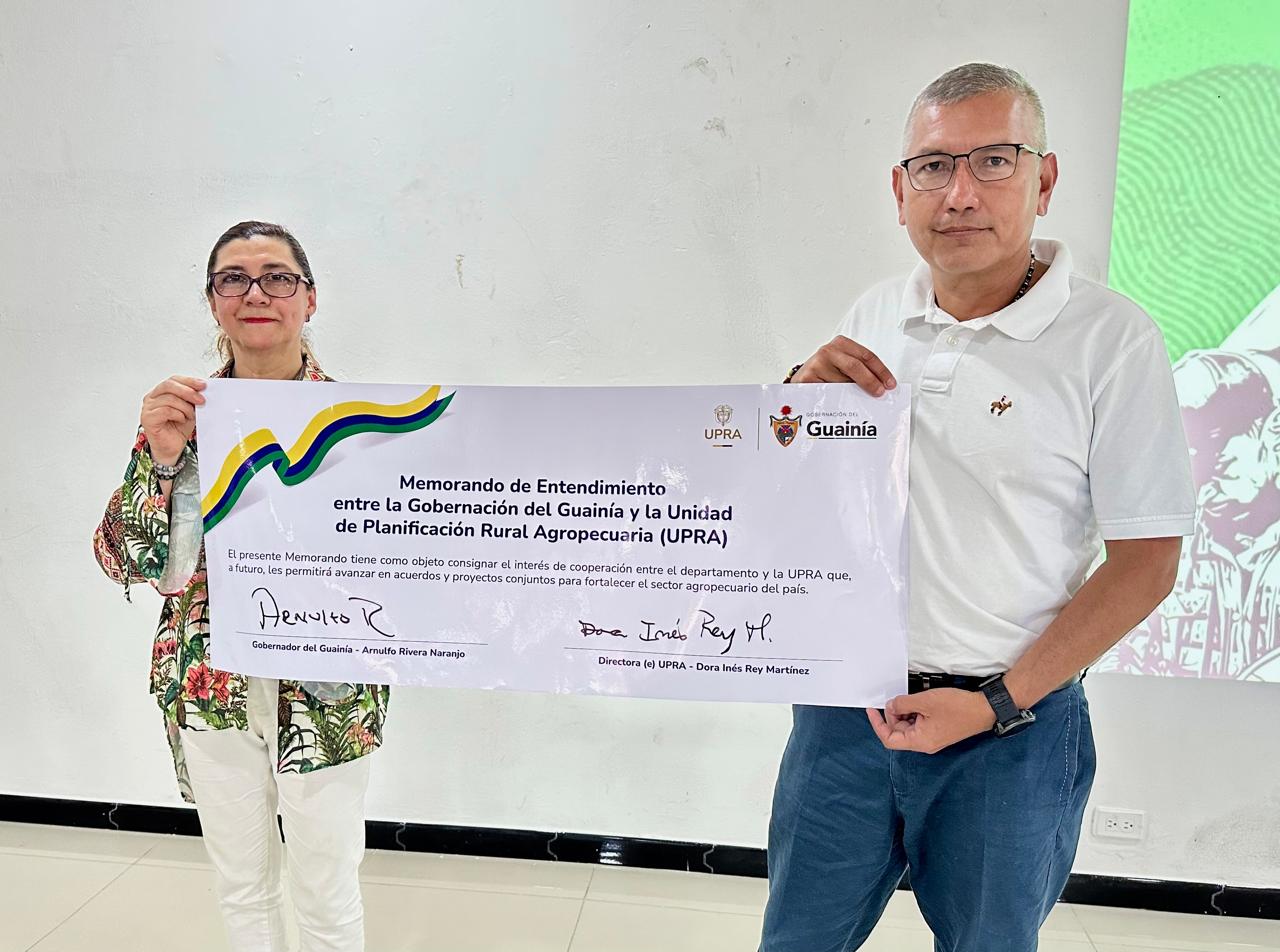Rural women, Indigenous peoples, Afro-descendants, fishermen, and peasant associations elected their representatives to the Departmental Committee for Agrarian Reform.
The UPRA and the Government of Guainía signed a memorandum of understanding for the 2024-2027 period to support and strengthen the planning of agricultural land-use management in the department and its municipalities.
Inírida-Guainía, (UPRAColombia, @dorairey) – From early in the morning, more than 200 people began arriving at the Custodio García School to attend the Peasant Popular Assembly with the goal of forming the Departmental Committee for Agrarian Reform and Rural Development in Guainía. Some participants traveled up to eight hours along the Inírida River to attend this long-awaited event, which had been postponed for decades.
“For over 30 years, an assembly like this had not been held; we appreciate these spaces to coordinate actions between the national government and the department to improve the lives of our peasants,” said Lisandro Rubio, a representative of the Barrancominas Mayor’s Office. This municipality, together with Inírida, occupies 80% of Guainía’s 72,238 km², making it Colombia’s fifth-largest department.
“I represent the association of working women of Barrancominas, Amaitraba. We are 21 women who are grateful for the invitation to participate in this gathering, where we have a lot to contribute. Thank you for making us visible!” said María Cristina Méndez, who was elected as the representative of rural women in the Departmental Committee for Agrarian Reform.
At the event, convened by the Ministry of Agriculture and Rural Development and the Government of Guainía, representatives of peasant associations, fishermen, rural women, Indigenous peoples, Afro-descendants, Raizales, and Palenqueros participated in thematic roundtables aimed at coordinating and implementing plans and programs related to Agrarian Reform and Rural Development in Guainía. The thematic roundtables were organized according to the eight subsystems of the National System for Agrarian Reform and Rural Development.
“This is an important space because it also fosters intercultural dialogue with Indigenous communities who identify as producers contributing to the department’s food security. It also aims to enhance artisanal fishing, agroforestry practices, and the cultivation of Amazonian fruits,” explained José Luis Quiroga, Director of Rural Property Management at the Ministry of Agriculture.
As part of this event, the UPRA and the Government of Guainía signed a memorandum of understanding to support the planning of agricultural land-use management.
“At UPRA, we support all processes related to the implementation of Agrarian Reform at the national level. We are focusing on working with the Amazon region’s governments to structure the productive and social use of rural property. For this department, productive alternatives such as Amazonian fruits have already been identified, and zoning for suitability will be developed, along with production cost analyses, among other initiatives aimed at strengthening the agricultural sector while preserving and protecting the Amazon ecosystem, which is of global importance,” stated Dora Inés Rey Martínez, Acting General Director of the entity.

The alliance includes the following activities:
- Technical assistance in Agricultural Land-Use Planning for the department and its municipalities.
- Updating the agricultural frontier for the Amazon region.
- Suitability zoning for the Amazon region and the delivery and socialization of national suitability zoning.
- Production cost analysis for prioritized alternatives in the Amazon region.
- Training on the Rural Agricultural Planning Information System (SIPRA).
- Support in identifying, characterizing, and georeferencing equipment, goods, and services of interest for the agricultural sector (RECIA).
Guainía, meaning "Land of Many Waters" has an agricultural frontier of 328,722 hectares. According to the Municipal Agricultural Evaluations (EVA), the department has a total of 4,453 hectares cultivated, producing 23,000 tons of food, including cassava, plantain, pineapple, maize, açaí, and chili, among others.
The event was attended by various entities, including UPRA, the National Land Agency, the Rural Development Agency, ICA, Finagro, Banco Agrario, MinTrabajo, SENA, the Sinchi Institute, and the Inírida Mayor’s Office, all of which made their institutional offerings available to the public.
